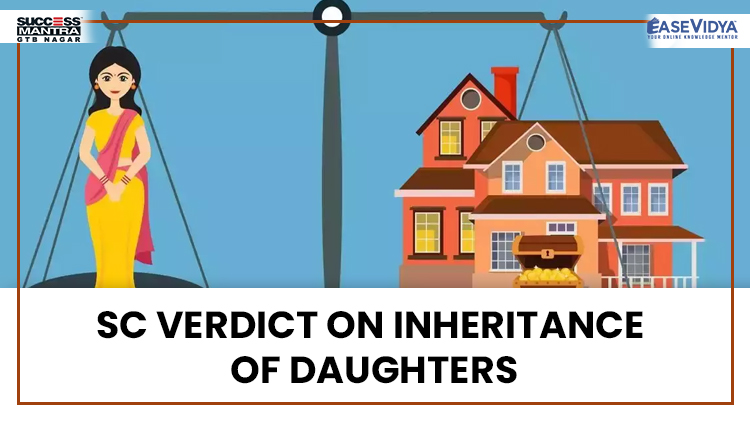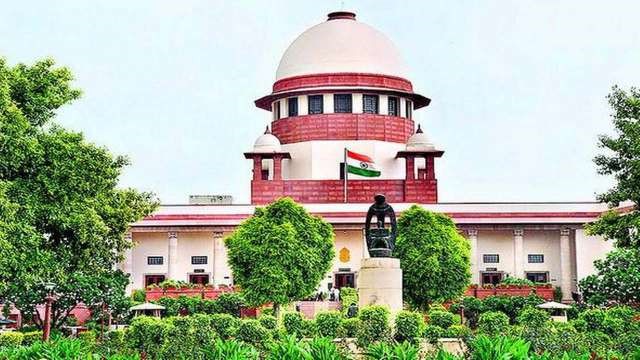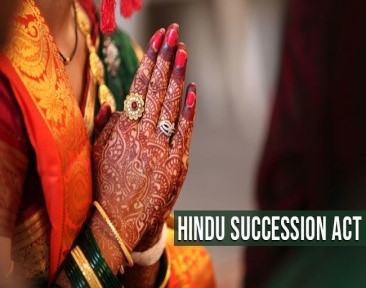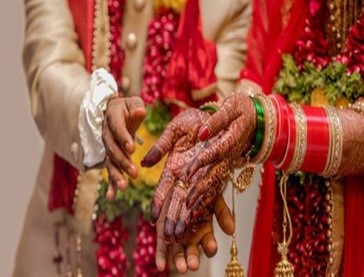
SC VERDICT ON INHERITANCE OF DAUGHTERS
SC VERDICT ON INHERITANCE OF DAUGHTERS
The Supreme Court of India, in a significant verdict announced that the daughters of a male Hindu, dying intestate, will be entitled to inherit the self-acquired as well as other properties obtained in the partition by the father. In this case, the daughters will get preference over other collateral members of the family. The latest Supreme Court judgement deals with the property rights of Hindu women and widows under the Hindu Succession Act. The judgment came on an appeal against the Madras High Court Verdict. The Supreme Court bench was dealing with the legal issue concerning the right of the daughter to inherit the self-acquired property of her father, in the absence of any other legal heir.

Current Affairs Notes By Success Mantra Coaching Institute GTB Nagar Delhi CLICK HERE
ABOUT DAUGHTERS INHERITANCE
- It ruled that the property of a man who had died without executing a will and is survived only by a daughter will devolve upon the daughter and not others such as his brother. Earlier in 2020, the SC has already expanded the Hindu women’s right to be the coparcener (joint legal heir) and inherit ancestral property on terms equal to male heirs. SC also looked into Vyavastha Chandrika, a digest of Hindu Law by Shyama Charan Sarkar Vidya Bhushan which quoted ‘Vrihaspati’ as saying ‘the wife is pronounced successor to the wealth of her husband, in her default, the daughter. As a son, so does the daughter of a man proceed from his several limbs.
- Old Law: Right of a widow or daughter to inherit the self-acquired property or share received in partition of a coparcenary property of a Hindu male dying intestate is well recognised not only under the old customary Hindu Law. If a property of a male Hindu dying intestate is a self-acquired property or obtained in partition of a coparcenary or a family property, the same would devolve by inheritance and not by survivorship, and a daughter of such a male Hindu would be entitled to inherit such property in preference to other collaterals”.
- Property after Woman's Death: The court also said that if a female Hindu dies intestate without leaving any issue, then the property inherited by her from her father or mother would go to the heirs of her father whereas the property inherited from her husband or father-in-law would go to the heirs of the husband. In case a female Hindu dies leaving behind her husband or any issue, then Section 15(1)(a) of the HSA 1956 will come into operation and the properties left behind including the properties which she inherited from her parents would devolve simultaneously upon her husband and her issues.
What if a female Hindu dies without leaving a will?
In that case, as per the court, the property she inherited from her father or mother will go to the heirs of her father while the property that she inherited from her husband or father-in-law will go to the heirs of her husband. The basic aim is to ensure that the inherited property of a female Hindu dying issueless and intestate goes back to the source.
HINDU SUCCESSION ACT, 1956
The Mitakshara school of Hindu law codified as the Hindu Succession Act, 1956 governed succession and inheritance of property but only recognised males as legal heirs. It applied to everyone who is not a Muslim, Christian, Parsi or Jew by religion. Buddhists, Sikhs, Jains and followers of Arya Samaj, Brahmo Samaj, are also considered Hindus for this law. In a Hindu Undivided Family, several legal heirs through generations can exist jointly. Traditionally, only male descendants of a common ancestor along with their mothers, wives and unmarried daughters are considered a joint Hindu family. The legal heirs hold the family property jointly.
Hindu Succession (Amendment) Act, 2005:
The 1956 Act was amended in September 2005 and women were recognised as coparceners for property partitions arising from 2005. Section 6 of the Act was amended to make a daughter of a coparcener also a coparcener by birth “in her own right in the same manner as the son”. It also gave the daughter the same rights and liabilities “in the coparcenary property as she would have had if she had been a son”. The law applies to ancestral property and to intestate succession in personal property, where succession happens as per law and not through a will. Different benches of the Supreme Court and High Courts had taken conflicting views on the issue.
For Example: In Prakash V/S Phoolwati (2015) case, a two-judge Bench headed by Justice A K Goel held that the benefit of the 2005 amendment could be granted only to “living daughters of living coparceners'' as on September 9, 2005 (the date when the amendment came into force). However In February 2018, contrary to the 2015 ruling, a two-judge Bench headed by Justice A K Sikri held that the share of a father who died in 2001 will also pass to his daughters as coparceners during the partition of the property as per the 2005 law. Then in April that year, yet another two judge bench, headed by Justice RK Agrawal, reiterated the position taken in 2015. These conflicting views by benches of equal strength led to a reference to a three judge Bench in the current case.

PRAVAHINI Current Affairs Notes By Success Mantra Coaching Institute GTB Nagar Delhi CLICK HERE
RELATED ISSUES
LEGAL MARRIAGE AGE OF WOMEN
Recently, the Union Cabinet cleared a proposal to bring uniformity in the marriageable age of men and women. By amending the Prohibition of Child Marriage Act (PCMA), 2006 and other personal law, the legal age of marriage of women will be raised rom 18 to 21 years. The decision is based on the recommendation of a four-member task force led by former Samata Party chief Jaya Jaitley.
About Legal Framework of Minimum Age for Marriage: In India, the minimum age of marriage was prescribed for the first time by the law known as the Sarda Act, 1929. It was later renamed as the Child Marriage Restraint Act (CMRA), 1929. In 1978, the law was amended to raise the minimum age of marriage to 18 years for girls and 21 years for boys. This position remains the same even in the new law called the Prohibition of Child Marriages Act (PCMA), 2006, which replaced the CMRA, 1929.
Marriage Minimum Age For Different Religion: For Hindus, The Hindu Marriage Act, 1955 sets 18 years as the minimum age for the bride and 21 years as the minimum age for the groom. In Islam, the marriage of a minor who has attained puberty is considered valid. The Special Marriage Act, 1954 and the Prohibition of Child Marriage Act, 2006 also prescribe 18 and 21 years as the minimum age of consent for marriage for women and men, respectively. For the new age of marriage to be implemented, these laws are expected to be amended.
Provisions in the Indian Constitution to safeguard women’s rights.
- The principle of gender equality is enshrined in the Indian Constitution in its Preamble, Fundamental Rights, Fundamental Duties and Directive Principles. The Constitution not only grants equality to women, but also empowers the State to adopt measures of positive discrimination in favour of women.
- Preamble: The Preamble to the Constitution of India assures justice, social, economic and political; equality of status and opportunity and dignity to the individual. Thus it treats both men and women equally.
Fundamental Rights
- Article 14 ensures women the right to equality.
- Article 15(1) specifically prohibits discrimination on the basis of sex.
- Article 15(3) empowers the State to take affirmative actions in favour of women. Article 16 provides for equality of opportunity for all citizens in matters relating to employment or appointment to any office.
Directive Principles of State Policy:
- Article 39 (a) provides that the state directs its policy towards securing for men and women equally the right to an adequate means of livelihood.
- Article 39 (d) mandates equal pay for equal work for both men and women.
- Article 42 provides that the state make provision for securing just and humane conditions of work and for maternity relief.

TEST YOURSELF
Q.1 The Supreme Court of India announced that the ________ of a male Hindu, dying intestate, will be entitled to inherit the self-acquired as well as other properties obtained in the partition by the father?
- Daughters: ANSWER
- Sons
- Other Collateral members of family
- None of the above
Q.2 Under the Hindu Succession Act, which of the following communities of people are not considered as Hindus?
- Buddhist
- Jains
- Parsi: ANSWER
- Followers of Arya Samaj, Brahmo Samaj
Q.3 Which of the following sections of the Hindu Succession Act was amended to make a daughter of a coparcener also a coparcener by birth “in her own right in the same manner as the son”?
- Section 2
- Section 6: ANSWER
- Section 15 (1)
- All of the above-mentioned
Q.4 By mainly amending which of the following legislation of the Indian Government the legal age of marriage of women will be raised from 18 to 21 years?
- Prohibition of Child Marriage Act (PCMA), 2006: ANSWER
- Hindu Marriage Succession Act, 1956
- Hindu Succession (Amendment) Act, 2005
- None of the following
Q.5 Article 39 (d) which mandates equal pay for equal work for both men and women comes under which of the following provisions of the Indian Constitution?
- Fundamental Rights
- Directive Principles of State Policy: ANSWER
- Fundamental Duties
- Preamble













0 Comment